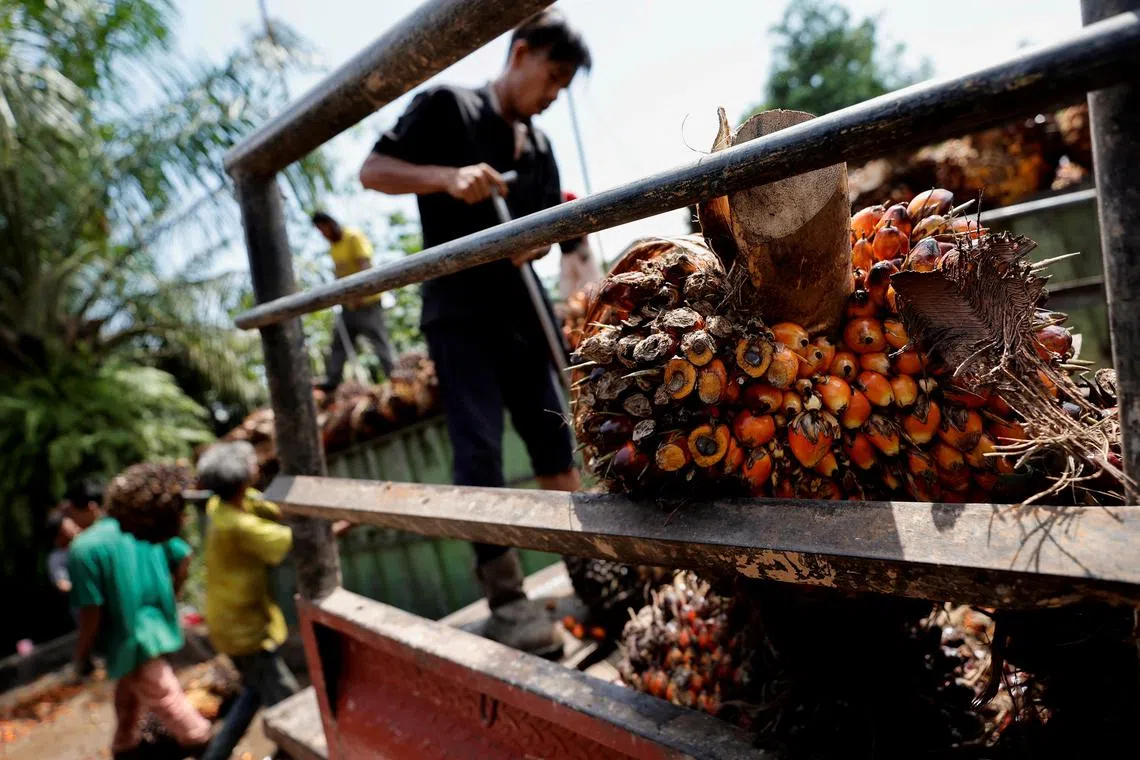Indonesia will export less palm oil to keep supplies at home
Sign up now: Get insights on Asia's fast-moving developments

The change will take effect from Jan 1.
PHOTO: REUTERS
JAKARTA - Indonesia, the world’s biggest palm oil producer, is set to export less of the commodity overseas as it tightens a policy requiring companies to keep more supply at home, causing prices to jump more than 2 per cent.
The government will cut the amount producers can export to six times the domestic sales requirement, down from eight times currently, according to Mr Budi Santoso, director-general of foreign trade at the trade ministry.
The change will take effect from Sunday, he said by text message on Friday.
The policy – known as the domestic market obligation – requires palm oil exporters to sell a portion of their supply to the domestic market before they can receive a permit to export.
It was implemented in late May following the lifting of Indonesia’s palm oil export ban, a move which shocked global markets as it sparked fears of worsening food inflation.
The government wants to ensure ample domestic supply during the Ramadan and Eid holidays in April, as production will be seasonally weaker in the first quarter, said Mr Firman Hidayat, an official at the coordinating ministry for maritime affairs and investment, which was involved in the decision.
Indonesia will also impose a higher biodiesel blending mandate in 2023, which will increase domestic consumption of palm oil.
“We don’t want domestic supply to be reduced and risk an increase in local prices,” Mr Hidayat said.
The move to tighten exports lifted palm oil prices in Kuala Lumpur, which hosts the world’s benchmark futures contract, as it should encourage Malaysia, the second-biggest exporter, to boost shipments.
Futures climbed as much as 2.5 per cent to 4,193 ringgit (S$1,280) a tonne, poised for the highest close in a month.
The latest policy would further restrict supply just as Indonesia is planning to increase the use of palm oil in biofuels, said Mr Gnanasekar Thiagarajan, head of trading and hedging strategies at Kaleesuwari Intercontinental.
He sees prospects for higher prices in the first quarter of 2023. BLOOMBERG


